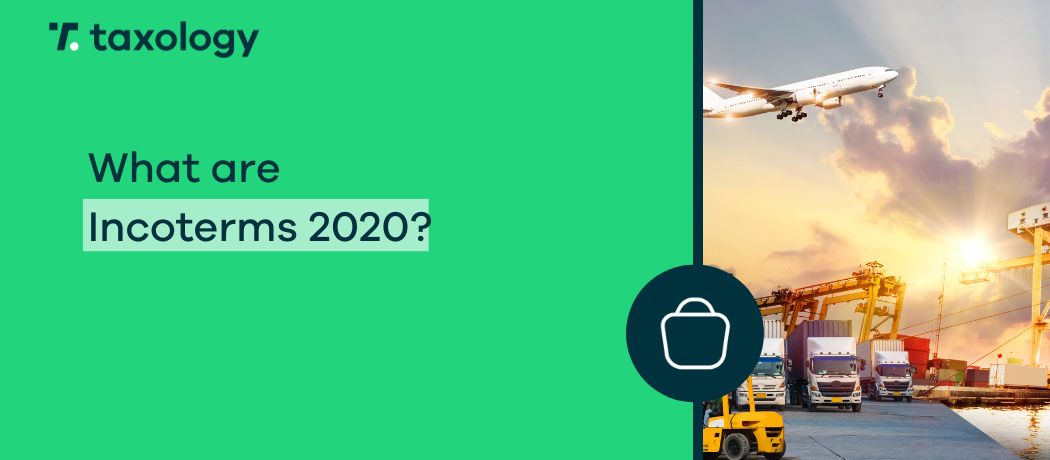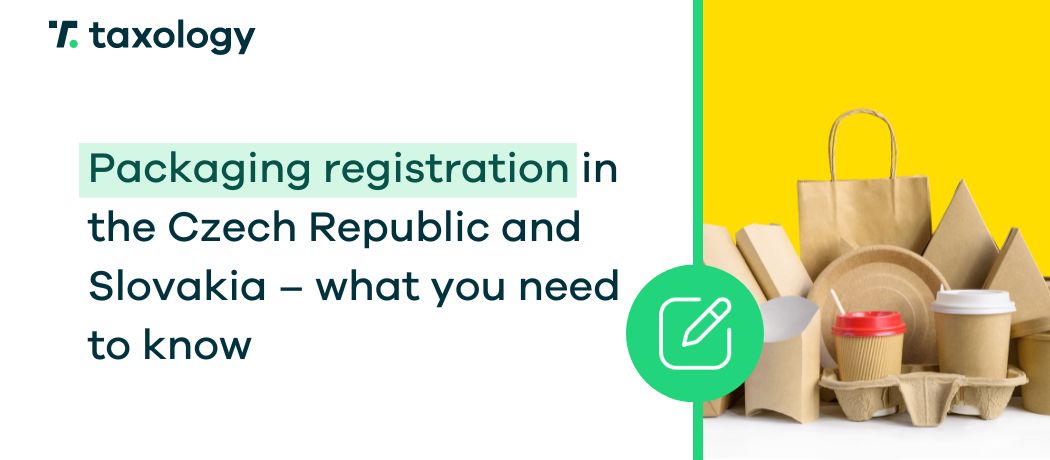France is one of the largest and wealthiest countries in Europe, making it an extremely attractive market for expansion for many entrepreneurs in the e-commerce sector. However, like any other […]
Read in: 5 minWhat are Incoterms 2020?
- Last update: 23.02.2024
- Published: 15.06.2023
- Read in: 10 min
The world of mail order selling is a vast subject that encompasses a variety of disciplines, including sales, negotiation, information technology, and logistics. Within the domain of logistics, challenges related to transportation arise, often posing a complex task for many in terms of clearly defining delivery terms or allocating responsibilities between buyers and sellers. However, in this context, the International Commercial Terms (Incoterms) come to the rescue. These are global trade regulations, with their initial version introduced in the first half of the previous century. Since then, these rules have been expanded, and it is their most recent iteration that we will examine closely in this article.
From the following article you will find out:
- What exactly are the Incoterms international trade rules?
- What are the most common Incoterms rules?
- What are the Incoterms rules for maritime and inland waterway transport?
Incoterms - what exactly are they?
Incoterms, short for International Commercial Terms, encompass a framework of regulations for international trade, as suggested by their name. The creation of Incoterms falls under the jurisdiction of the International Chamber of Commerce (ICC), an organisation uniting businesses from more than 100 countries.
The initial version of Incoterms was introduced in 1936, and it has undergone eight subsequent amendments. The latest iteration, Incoterms 2020, represents the ninth edition of these global guidelines.
The fundamental purpose of Incoterms is to distinctly outline the scope of responsibility allocated to both the seller and the buyer when employing a specific rule. These rules establish which party in a transaction bears the financial burden and oversight for shipping, insurance, documentation, and the obligation to navigate export customs, if applicable.
Furthermore, Incoterms streamline the process of international transactions. Enterprises need not devise their own regulations; they can adopt one of the existing Incoterms, which streamlines the process and negates the need for individual rule-setting in global business transactions.
Incoterms 2020 - rules
Currently, there are 11 operational Incoterms regulations, categorised into the general rules and rules pertaining to maritime and inland waterway transportation.
It is essential to highlight that these rules precisely outline the point at which the delivery of goods is deemed complete, and this doesn’t always correlate with the physical delivery to a specified location.
For example, in accordance with the EXW (Ex Works) rule, goods are considered delivered once they are loaded onto the seller’s transportation means. In contrast, adhering to the FAS (Free Alongside Ship) rule, goods are regarded as delivered when they are positioned alongside the ship.

Do you trade internationally? You may need help with VAT!
In such a situation, it is worth relying on the help of experts! Our VAT Compliance specialists will be happy to help you with VAT issues in EU Member States and the UK – registrations, settlements, declarations, VAT OSS and EU VAT. Tell us what exactly you need and we’ll do the rest!
Schedule a consultationThe most common Incoterms rules
There are 7 general Incoterms rules, being:
- EXW Ex Works (at the premises) – Under this rule, the responsibility falls upon the seller to deliver the goods to a specified destination for the buyer. Within the EXW Ex Works context, the seller is not obliged to handle the loading of goods, nor are they mandated to arrange export clearance if such clearance is relevant to the transaction.
- FCA Free Carrier – In accordance with this guideline, the seller assumes the role of delivering the goods to the buyer via two potential scenarios:
- 1. Goods are considered effectively delivered once they are loaded onto a transportation mode arranged by the buyer, and the loading takes place at the seller’s premises.
- 2. The delivery of goods is acknowledged as complete when they reach the designated delivery point, situated beyond the seller’s premises. At this point, they are prepared for unloading from the transportation mode and are made available to the buyer, an authorised representative of the buyer, or the carrier.
- CPT (Carriage Paid To) – The CPT Incoterm designates that the seller takes on the duty and financial burden for various elements such as packaging, pre-carriage, or loading related to the primary transportation. The seller also incurs the costs of the main transportation. However, once the goods are loaded, the responsibility for the goods shifts to the buyer, who then assumes the responsibility and costs for the subsequent phases of the transaction.
- CIP (Carriage and Insurance Paid to) – The distinguishing factor between CPT and CIP lies in the fact that under Carriage and Insurance, the seller has an additional obligation to provide insurance coverage against potential loss or damage to the goods by the buyer, commencing from the point of delivery and extending at minimum to the point of destination.
- DAP (Delivered at Place) – Within the DAP framework, the seller is exclusively accountable for and bears the expenses linked to the import duty. All other obligations rest with the seller. They shoulder complete responsibility for delivering the goods to the designated location and transferring them to the buyer. Conversely, the goods are considered delivered when they are placed at the disposal of the buyer on the transportation mode, ready for unloading at the specified destination.
- DPU (Delivered at Place Unloaded) – The DPU Incoterm extends the principles outlined in the DAP rule. A comparison between the two reveals that in the case of DPU, the financial responsibilities and obligations tied to the final stage of transportation transition from the seller to the buyer. Additionally, the seller assumes the task of unloading the goods at the designated destination. It’s important to highlight, however, that while transport insurance falls within the seller’s responsibility in this Incoterms rule, it remains an optional aspect.
- DDP (Delivered Duty Paid) – Under the DDP framework, the seller assumes complete responsibility and liability for all aspects encompassing the transaction – this includes insurance, transportation, and duties. Goods are deemed officially delivered when they are transferred to the buyer, having undergone clearance for importation and positioned for unloading at a distinctly specified location.
Maritime and inland waterway transport rules
In addition to the 7 general Incoterms rules, there are also 4 rules specifically designed for maritime and inland waterway transportation. These are:
- FAS (Free Alongside Ship) – The seller fulfils their obligation when the goods are positioned alongside the ship, as indicated by the buyer, at the specified port. Once the goods are placed alongside the ship, all subsequent costs and risks are assumed by the buyer.
- FOB (Free on Board) – Delivery of the goods is considered complete when the seller loads them onto the carrier’s vessel appointed by the buyer or when the buyer is granted access to the goods. At this stage, all risk transfers to the buyer, who also takes on all costs from that point onward.
- CFR (Cost and Freight) – The CFR rule defines delivery as the moment when the seller either delivers the goods on board the ship or arranges for their delivery. Once the goods are ready for delivery, all risk associated with the goods transfers to the buyer. It is important to note that while the seller covers transportation costs, insurance of the goods is not mandatory, and it is the buyer’s discretion whether to bear the cost of insuring the goods.
- CIF (Cost, Insurance and Freight) – CIF presents an extended version of the CFR rule, with the distinction that the seller i is required to secure insurance covering the potential loss or damage to the goods by the buyer, starting from the moment of loading and extending to, at minimum, the designated port of arrival.
Incoterms 2020 - Summary
Incoterms function as globally recognised trade rules that establish predefined terms for sales and allocate responsibilities regarding the expenses tied to transporting or insuring merchandise.
These regulations are categorised into 7 general rules and an additional 4 rules designed specifically for maritime and inland waterway transport. Each rule encompasses various aspects, including defining when goods are officially considered delivered and determining the parties responsible for the transportation of goods at different stages.
Nonetheless, it’s crucial to keep in mind that the production and distribution of goods and services come with a Value-Added Tax (VAT) obligation for businesses, a significant consideration that should not be overlooked. If your business involves selling goods and services to various EU countries or the UK, and wish to ensure precise VAT management, including accurate settlement, VAT registration, and VAT OSS, we encourage you to schedule a free consultation with us. Explore firsthand how our team of VAT Compliance specialists can provide invaluable assistance to your business operations.
If you want to learn more, check out our articles, including:




